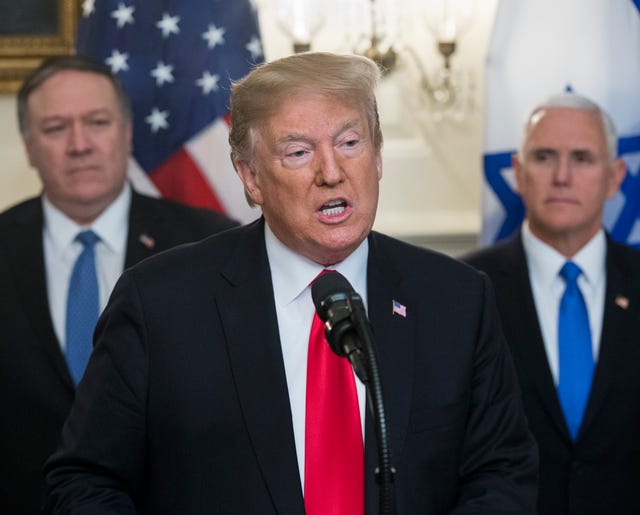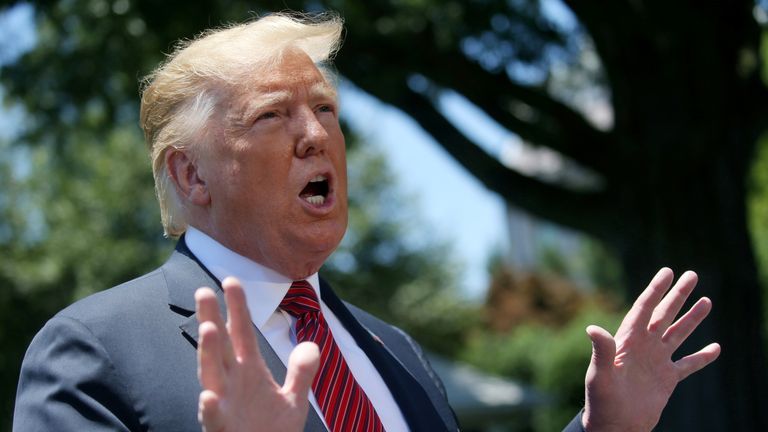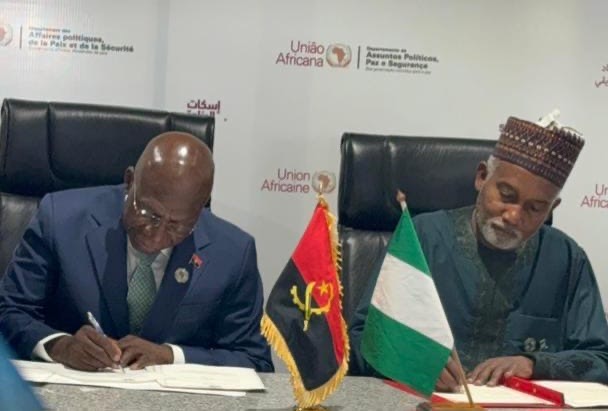‘As tensions in the Middle East escalate to alarming levels, former U.S. President Donald Trump has issued a stern warning to Iran not to target American interests amid the intensifying conflict between Iran and Israel. The warning comes amid rising casualties, international concern, and growing fears of a broader regional war that could drag in world powers.
In a Truth Social post at 12:32 a.m. on June 15, Trump declared, “If we are attacked in any way, shape or form by Iran, the full strength and might of the U.S. Armed Forces will come down on you at levels never seen before.” Yet, he also hinted at a potential diplomatic breakthrough, adding, “However, we can easily get a deal done between Iran and Israel, and end this bloody conflict.”
Trump’s message followed a deadly weekend of mutual attacks between Iran and Israel. On Friday morning, Israel launched “Operation Rising Lion,” a surprise offensive targeting Iran’s military command and nuclear infrastructure. The operation, which reportedly wiped out top Iranian military officials and damaged key nuclear sites, prompted Iran to launch retaliatory missile barrages against Israeli cities.
Rescue teams in Israel scoured the rubble of apartment buildings destroyed by Iranian strikes, with at least 13 civilians confirmed dead, including children. Explosions shook Tel Aviv and Haifa, and Iranian missiles struck an elderly care facility, injuring several residents. In Bat Yam, a suburb of Tel Aviv, six people were killed in a single strike. The country’s national emergency service reported over 350 injured since the exchange began.
On the other side, Iran claimed that Israeli strikes have killed at least 138 people since June 13, with 60 deaths recorded in a single attack on a 14-storey apartment complex in Tehran on June 14. Among the victims were dozens of children. In the capital city, the night sky was lit up by massive fires after Israeli warplanes bombed oil and gas depots—facilities critical to Iran’s economy and state functionality.
As air raid sirens continued to blare and missile alerts disrupted daily life, both nations’ militaries issued evacuation warnings to civilians near targeted zones. Israel urged Iranians living close to military or weapons facilities to leave immediately, while Iran advised Israelis to avoid “vital areas” under threat.
While the two nations traded missile attacks, Trump lauded Israel’s military campaign, defending the country’s right to defend itself. He also pushed back on Iranian claims that the U.S. was directly involved in the conflict. “The U.S. had no role in Israel’s attack,” Trump stated, although American pilots reportedly assisted in intercepting Iranian drones en route to Israeli territory.

Despite this strong military posture, Trump expressed confidence that peace was still achievable. Speaking to ABC News, he said, “Iran and Israel should make a deal, and will make a deal. We will have PEACE, soon, between Israel and Iran! Many calls and meetings now taking place.” The optimism comes amid reports of indirect talks and potential Russian mediation. Trump confirmed he discussed the crisis with Russian President Vladimir Putin, indicating that the Russian leader could play a role in facilitating a diplomatic resolution.
“I think something like this had to happen,” Trump said during his ABC interview, suggesting that the violence might force both parties back to the negotiating table faster than expected.
This position contrasts sharply with that of Israeli Prime Minister Benjamin Netanyahu, who has vowed to intensify the military campaign. In his address from the devastated town of Bat Yam, Netanyahu declared, “We did act – to save ourselves, but also to protect the world from this incendiary regime. We can’t have the world’s most dangerous regime have the world’s most dangerous weapons.”
Netanyahu has long maintained that Iran’s nuclear and ballistic missile programs pose an existential threat to Israel. Though Iran insists its nuclear efforts are solely for peaceful purposes, the International Atomic Energy Agency (IAEA) recently concluded that Tehran is close to enriching uranium at 90% purity—the level required for a nuclear bomb.
The Israeli campaign has clearly defined objectives: to dismantle Iran’s nuclear infrastructure and to eliminate its long-range missile capabilities. However, speculation about deeper goals surfaced after Reuters reported that Israel had proposed targeting Iran’s Supreme Leader, Ayatollah Ali Khamenei. The report claimed that Trump vetoed the plan, citing the absence of American casualties as a reason for restraint.
A senior U.S. official told Reuters, “Have the Iranians killed an American yet? No. Until they do, we’re not even talking about going after the political leadership.” When asked about the report during an interview with Fox News, Netanyahu refused to confirm or deny the allegations, saying, “There’s so many false reports of conversations that never happened, and I’m not going to get into that.”
However, Netanyahu did confirm that he informed Trump ahead of Israel’s surprise military strike. “We do what we need to do,” he said, reiterating Israel’s commitment to neutralizing what he called Iran’s “existential threat.”
Although Netanyahu stressed that regime change is not the stated goal of the operation, he acknowledged that it could be a byproduct. “Could certainly be the result because the Iran regime is very weak,” he said.
With Israel’s military warning that operations could continue for weeks, global reactions have begun pouring in. German Chancellor Friedrich Merz expressed hope that the G7 summit convening in Canada would produce a unified resolution to prevent further escalation. Meanwhile, international airlines, including Israel’s national carrier El Al, have suspended flights through June 19, extending some cancellations to June 23.

El Al cited ongoing airspace restrictions and security risks. “Once approvals are received from the relevant security and aviation authorities, we will do everything possible to allow as many Israelis as possible to return home,” the airline said in a statement. Israel’s National Security Council also issued Level 4 travel warnings for neighboring Jordan and Egypt, despite their borders remaining technically open.
As warplanes crisscross the skies and missiles rain down on both sides, the prospect of a broader conflict involving other Middle Eastern countries and even global powers looms large. With the U.S. taking an increasingly assertive stance and Russia reportedly engaged behind the scenes, the crisis risks spiraling out of control.
Despite the chaos, Trump remains focused on brokering peace. He believes that pressure from Israel’s campaign and international diplomatic efforts could push Iran toward negotiations. However, hopes for a breakthrough took a blow when Iran withdrew from scheduled nuclear talks in Oman, citing the Israeli offensive.
Iranian Foreign Minister Abbas Araqchi accused Israel of attempting to sabotage the negotiations. “These attacks are deliberate provocation and have U.S. backing. Iran is acting in self-defense,” Araqchi said, adding that Iran would not negotiate “under fire.”
While the U.S. previously indicated it would stop airstrikes on Houthi rebels in Yemen, another Iranian ally, Trump’s firm stance on Iran striking American interests marks a sharp pivot in posture. “We will stop the bombings,” Trump had said earlier in June from the Oval Office, but that restraint appears contingent on Iran not extending its retaliation to U.S. forces or assets.
For now, the world watches with anxiety as the Israel-Iran conflict unfolds. The stakes are high—not just for the two nations locked in direct confrontation, but for regional stability and global security. Any miscalculation could trigger a chain reaction, dragging in Lebanon’s Hezbollah, Iraq’s militias, the Gulf states, and even Western militaries.
Trump’s dual message of deterrence and diplomacy sets a precarious tone for the coming weeks. His belief that a deal is “easily” within reach may be optimistic given the deep-rooted enmity, but the former president appears determined to steer the crisis toward a negotiated outcome, even as bombs continue to fall.
Sources




